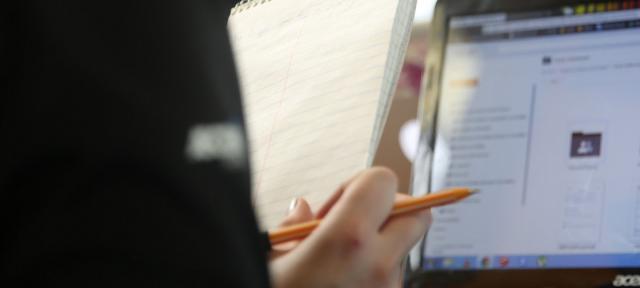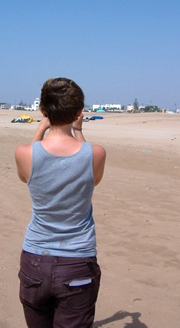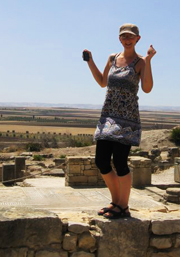Womens Activism in 20th Century Iran

The fact that Dooler Campbell's 07F Division III—"Nature and Development of Women's Activism in 20th Century Iran"—ended up being 79 pages long is "kind of perfect," she says, because so much of it centers on the Iranian Revolution of 1979.
 |
Campbell has spent the past year studying the build-up to the revolution--particularly from the 1940s to the 1970s during the Pahlavi regime when modernization was on the rise in Iran--and women's responses to both Westernization and the sharp shift to Islamic reform. "Both sides used women for their own ends," she says.
"There is a Western idea that you have to have modernization to achieve women's rights, but the Pahlavi regime basically put a stop to women speaking for themselves," Campbell remarks. "And the Islamic Revolution was saying the same kinds of things, only replacing 'modernization' with 'Islamization.'"
Working with Berna Turam, associate professor of sociology and Middle East studies, as her chair and Jutta Sperling, associate professor of history, as her other committee member, Campbell examined the complexities of the women's movements in support of or in opposition to the Islamist state. By the 1990s, contention between the two groups was high. But then women started to collaborate and sought ways to work together, often through the press.
"Zanan was one of the few women's magazines that self-identified as feminist and they published writing from secular lawyers to Islamist women, and incorporated some Western feminist works, trying to get as many ideas as possible," Campbell says.
 |
Campbell says she is searching for a "global feminism," of which she believes that Zanan, in its openness to a variety of viewpoints, was an example. In the summer of 2008, she traveled to Morocco and interviewed women about the traditional and modern ways of veiling, which gave her firsthand experience with women's different perspectives on Islam.
Campbell is also attracted to old texts and is interested in reading and interpreting the Qur'an, "looking at it through a social justice lens specifically related to women's rights and queer rights" and relating her readings to contemporary social movements.
"I love sacred texts and I'm offended when people take these texts and then turn them into weapons of hate," she says.
Campbell will be attending the Arabic Language Institute at American University in Cairo for nine months starting this fall, and says she hopes to continue the work she began in her Div III in graduate school the following year.

